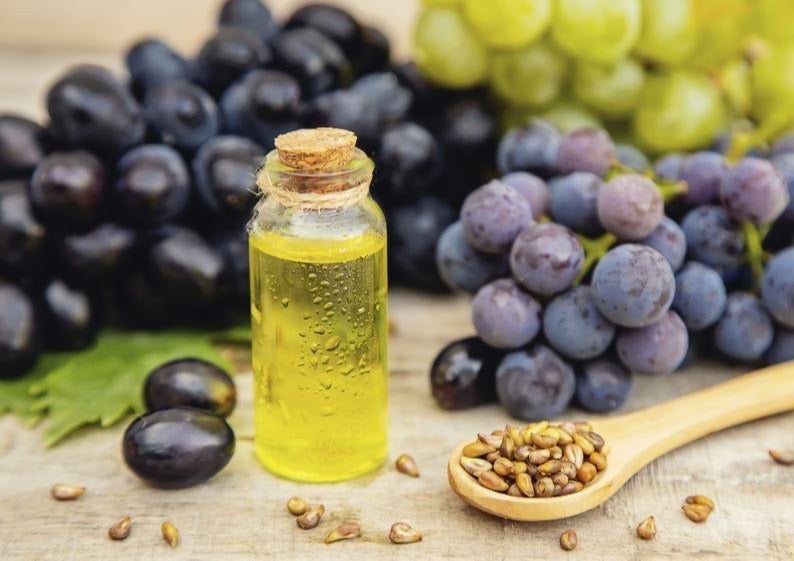Cottonseed oil is a type of vegetable oil derived from the seeds of cotton plants. Often overshadowed by more popular oils like olive and canola, cottonseed oil has unique properties that make it highly versatile in both culinary and industrial applications. Its contribution to both the food industry and various manufacturing processes cannot be understated. For kitchen professionals and home cooks alike, understanding the functionalities and benefits of this oil can enhance culinary practices and contribute to more informed choices in cooking.
In this article, we'll delve into the details of what cottonseed oil is, its benefits, uses, and much more. Whether you are a seasoned chef or a curious home cook, you'll find valuable insights that can elevate your understanding and perhaps even your cooking skills.

Composition and Production of Cottonseed Oil
The Extraction Process
The process of extracting cottonseed oil starts with the cotton-growing process. Once the cotton fibers have been harvested, the seeds are separated and cleaned. These seeds then undergo a series of mechanical processes to extract the oil. One common method is mechanical pressing, where the seeds are crushed to expel the oil. Another method involves solvent extraction, which uses chemical solvents to release the oil from the seeds.
Components and Nutrients
Beneath its golden hue, cottonseed oil boasts a complex composition of nutrients and fatty acids. Typically, cottonseed oil contains a mix of polyunsaturated, monounsaturated, and saturated fats. It is notably high in linoleic acid, a type of omega-6 fatty acid, which can be beneficial for heart health when consumed in moderation. Moreover, it contains significant amounts of vitamin E and antioxidants, which can help reduce oxidative stress in the body.

Culinary Uses of Cottonseed Oil
Frying and Baking
One of the primary uses of cottonseed oil in the kitchen is its application in frying. Its high smoke pointapproximately 420F (216C)makes it an excellent choice for deep frying foods. The neutral flavor ensures that it doesn't overpower the dishes, allowing the natural flavors of the food to shine through. Learn more about frying tips.
Salad Dressings and Marinades
Beyond frying, cottonseed oil can also be used in salads and marinades. Its light texture and neutral taste make it a versatile base for various recipes. By blending it with herbs, spices, and other oils, you can create a variety of dressings and marinades that enhance the flavors of your salads and meats. Check our marinade recipes for inspiration.

Health Benefits of Cottonseed Oil
Cardiovascular Health
One of the standout features of cottonseed oil is its positive impact on cardiovascular health. The abundance of polyunsaturated fats, particularly linoleic acid, helps lower bad cholesterol levels (LDL) and increase good cholesterol levels (HDL). This balance can contribute to better heart health and a reduced risk of heart disease.
Rich in Antioxidants
The presence of vitamin E and other antioxidants in cottonseed oil makes it a beneficial addition to a balanced diet. These antioxidants help combat free radicals in the body, which can contribute to cellular damage and aging. For more on health benefits, visit our article on health benefits of cottonseed oil.

Industrial Uses of Cottonseed Oil
Non-food Applications
While cottonseed oil is primarily known for its culinary uses, it also has various industrial applications. It is often found in products such as soaps, cosmetics, and detergents. Its emulsifying properties make it a valuable ingredient in the manufacturing of these goods.
Role in Animal Feed
Another less-known but significant use of cottonseed oil is in animal feed. The by-products of cottonseed oil extraction, such as cottonseed meal and hulls, are rich in protein and fiber, making them valuable for livestock nutrition.
Potential Concerns and Considerations
Pesticide Contamination
One of the concerns related to cottonseed oil is the potential for pesticide contamination. Cotton is often heavily sprayed with pesticides, which can linger in the seeds and by extension, in the oil. Therefore, it is crucial to opt for organic or non-GMO cottonseed oil whenever possible to reduce the risk of exposure to harmful chemicals. For safe consumption tips, read our guide on pesticide-free cottonseed oil.
Balanced Consumption
Like all oils, cottonseed oil should be consumed in moderation. While its benefits are notable, excessive consumption of any oil can lead to health issues such as obesity and heart disease. It is always advisable to maintain a balanced diet and consult nutrition experts when needed. To understand more about balanced diets, check our article on balanced diet guide.
Frequently Asked Questions (FAQs)
What is the shelf life of cottonseed oil?
Cottonseed oil typically has a shelf life of about 12 to 18 months when stored properly in a cool, dark place. Once opened, it is best to use the oil within six months for optimal freshness.
Is cottonseed oil safe for people with nut allergies?
Yes, cottonseed oil is generally considered safe for people with nut allergies. However, it is always advisable to consult with a healthcare provider if you have severe allergies or other dietary concerns.
Can cottonseed oil be used for making homemade beauty products?
Absolutely! Cottonseed oil's moisturizing and emulsifying properties make it a great ingredient for homemade soaps, lotions, and other beauty products.
For more tips on home use, you can check this helpful guide from Homes and Gardens.
For more detailed information on cottonseed oil, you can visit this link.
As an Amazon Associate, I earn from qualifying purchases.






Leave a comment
This site is protected by hCaptcha and the hCaptcha Privacy Policy and Terms of Service apply.